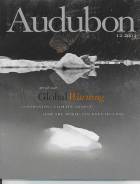 |
|
GOING TO BAT FOR BATS
Audubon Magazine, December 2003
The boxed bat
guano – collected, sanitized and given away each week -- is
a gift from Ann-Francis Ford. “Best fertilizer around,” she
declares. Ford snaps down her bicycle kickstand then starts
working the crowd. Never one to miss an educational moment,
this grandmother, naturalist and Florida Keys Audubon
Society member passes out flyers about the velvety
free-tailed bat (Molossus molossus), the species that people
gather here every evening to see swarm.
The curious bat
watchers aren’t standing outside a cave but a school
maintenance building in Monroe County, Florida. The only
colony of velvety free-tailed bats known to roost in a US
city is in one of the school’s hollow block walls. In most
places, bats are about as popular as prisons and nuclear
power plants, and, despite their rarity, these bats are no
exception: Few people want them in their backyards,
including at first the Monroe County School Board. However,
the bats are protected by Florida state law and cannot be
exterminated. Last year Ford and other members of the
Florida Keys Audubon rallied around the bats to enlighten
the community and make sure the animals weren’t evicted.
The colony is
located just a block away from an elementary school – too
close for the comfort of many school board members, but just
about right, according to the kids. Cyndi Marks of the
Florida Bat Center traveled 300 miles at Audubon’s request
to teach the students all about the nocturnal creatures; a
wave of save-the-bats letters soon reached the school
superintendent. “There’s no health risk if people know to
avoid injured animals,” says Dr. Mark Whiteside, a physician
and president of Florida Keys Audubon. “I’ve spoken with
fish and wildlife officials, with our state veterinarian and
an entomologist. We all agree they’re roosting in the best
possible place.”
An unusually large
number of albino bats – five in a colony of 1,200 (albinism
in mammals usually occurs at a rate of just one in a
million) – has further dispelled old concerns. The unusual
phenomenon “shifts the mind-set about bats from vampires to
good guys,” says Tom Andrews, a Florida Keys Audubon
member. The school board has agreed to grant the bats
asylum, he says. “And that’s as impressive as seeing one of
the albinos themselves.”
By Barbara
Bowers, © 2003
|
|